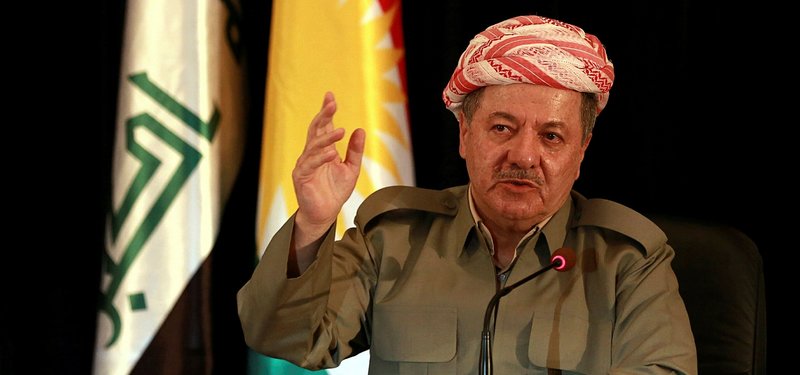
KRG head Barzani explains why Peshmerga retreated from city of Kirkuk
The decision on withdrawal from Kirkuk was one-sidedly taken by local politicians in the Kurdish region, KRG head Barzani said in a statement on Tuesday.
- World
- Anadolu Agency
- Published Date: 12:00 | 17 October 2017
- Modified Date: 09:34 | 17 October 2017
Masoud Barzani, head of northern Iraq's Kurdish Regional Government (KRG), has attributed the recent withdrawal of Kurdish Peshmerga fighters from the city of Kirkuk to "unilateral decisions" taken by local Kurdish leaders.
"What happened in Kirkuk [i.e., the withdrawal] was the result of unilateral decisions taken by local politicians in the Kurdish region," Barzani said in a Tuesday statement.
"These decisions resulted in the total withdrawal of Peshmerga forces [from Kirkuk]," he added.
-LINE OF CONTACT
In the same statement, Barzani said that the "line of contact" between the Iraqi army and Peshmerga forces loyal to the KRG had reverted to its pre-2014 status "before Mosul was overrun by Daesh".
In a separate statement, the KRG's Ministry for Peshmerga Affairs said the "line of contact" would be determined "in accordance with agreements signed before the [Iraqi] army liberated Mosul".
"According to agreements signed by the Iraqi government and the KRG -- and guaranteed by the U.S.-led coalition authorities -- the line of contact should revert to the status enjoyed before the Mosul campaign began on Oct. 17 of last year," the statement read.
"Both sides [i.e., Baghdad and Erbil] are expected to adhere to this agreement, while a new line of contact will be decided upon in coming days," the ministry added.
Tension has steadily mounted between Baghdad and the Erbil-based KRG since Sept. 25, when Iraqis in KRG-controlled areas -- including the disputed Kirkuk province -- voted on whether or not to declare independence.
After deploying troops to disputed areas this weekend, Iraqi officials announced on Monday that Kirkuk's strategic oilfields had been brought under the control of Iraq's central government.
In the wake of Daesh's 2014 onslaught in northern and western Iraq, forces loyal to the KRG seized a number of disputed areas in the Kirkuk, Nineveh, Diyala and Saladin provinces.

